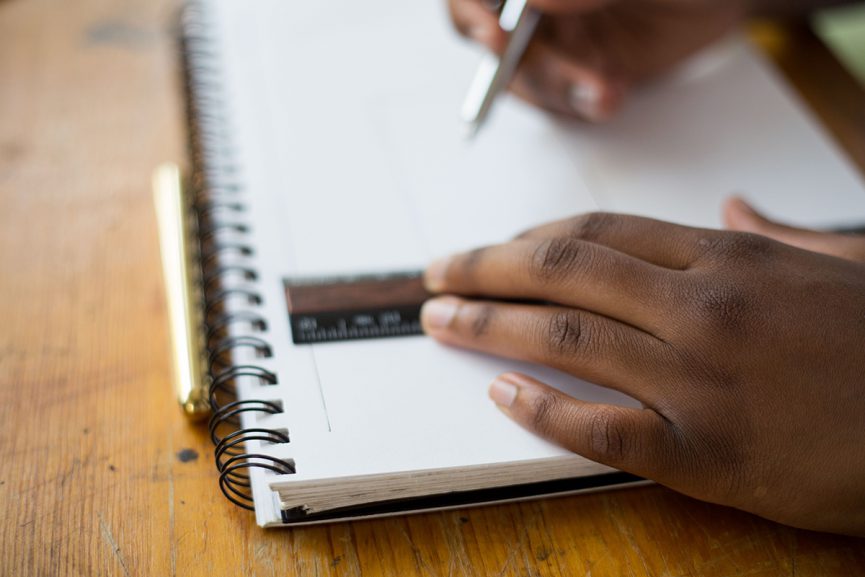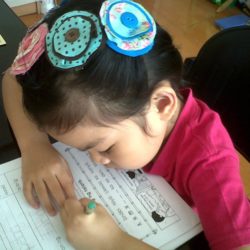Why in the world should anyone consider homeschooling? After all, the school system that many of us came from is a great system and seems to turn out great achievers, learners, and the like. Right?
I thought so. After all, I came from a good private Jesuit school through all my elementary, high school, and college years. Although I wasn’t top of my class, I did well and learned a lot from that experience. I was an honor student, varsity team member, and even student council member —who was president of his class at one point.
But somewhere along that school journey I met a girl, from the same school, who was homeschooled for a large part of her elementary years. I fell in love with her, actually, and she is now my wife. I didn’t fall in love with her because she was homeschooled, but because she was familiar and mysterious all in one. What was familiar made it easy to get along with her, and what was mysterious drew me in and made me curious, and kept me on my toes as I pursued her.
Homeschooling was part of the mystery. I had never heard about this form of education up until that point. So I asked questions like, “How exactly does that work?”, and “Isn’t that a substandard form of education because parents aren’t trained teachers?”, and also “Won’t students turn out weird because they don’t get proper socialization?” I honestly can’t remember the finer details of that conversation, and the verbatim responses she gave me. But let me tell you the gist of her responses, peppered with information I’ve gleaned from my own research on homeschooling, and the 14 years or so experience I’ve had thus far with this form of learning. Obviously the response and info I got have been compelling enough for me to shift all my five kids to this learning mode and to help champion this form of learning here and across the globe.
You know what’s funny about all this? The questions I had back then are essentially the same questions many parents ask when they first come across the idea of homeschooling. We in fact, now term the latter two questions as the “Big A” and the “Big S” for academics and socialization, respectively. So if and when parents get the answers to these questions, they will see why homeschooling is, in a very real and profound way, a wonderful privilege.
How exactly does it work?
There are so many ways to answer this question. And various homeschoolers around the world will give various definitions as well. See for yourself (if you haven’t Googled this already). But the common thread across definitions is this (thanks to a dear friend and mentor Gerald Huebner, Chairman of the Global Home Education Congress, amongst other things): Homeschooling is home-based, parent-led education.
The Big A: Isn’t this a substandard form of education?
According to the National Home Education Research Institute (NHERI), definitely not. Because of the personalized or customized approach to learning that homeschooling inherently possesses, learning is optimized in ways that many education institutions are still trying to adopt. Just ask top educators like Dr. Michael Tan. Chancellor of the prestigious University of the Philippines in Diliman. He is a homeschooling dad who has much to say about the academic quality of this method.
The Big S: Won’t students turn out weird because of the lack of socialization?
Socialization is best understood when the goal is articulated. Ergo, what one parent deems as proper socialization may be different for another, so it is important to first ask oneself the goal he or she has in having their child experience “socialization”. What is yours? Most often, the answer we get is “to prepare our kids for the real world”. This is a good goal, but needs further probing. Does the real world expose us to people who are of the same age, gender, social class, and religion? Nope. But most private schools in the Philippines do. And barring the co-ed nature (i.e. boys and girls in the same class), most public schools in the Philippines do as well. So is there an environment that better resembles the “real world”? Yes. The details of that environment are now up to the parent, up to the real world they deem best for the child to be exposed to. Homeschooling allows for the flexibility of that environment to be created. In our family, for example, I am able to take my sons on speaking engagements around the world, and get them started in investing in the stock market early — real world stuff that I do, and they have shown interest in.
At this point you’ve probably noticed that this article is not like most articles that have blow-by-blow accounts of the pros and cons, and the ins and outs of homeschooling. Well, that’s intentional. Why? Because a) you can look up those articles and get as much of the info you need and want, and b) I want to focus instead on the heart of homeschooling. This is what ultimately convinced me, and has kept me going as a champion of this form of learning —even in moments when I was honestly second-guessing its effectiveness and viability.
At the heart of homeschooling is good parenting. In fact, in my experience, the Big A and the Big S, solid advantages as they may seem, will fail if parenting fails. And the key to good parenting is maximizing the time we have with our kids: time to cover the academics well (yes, this is clearly important!), but moreso, time to impart the right values, time to model the right values (and humbly ask for forgiveness where we mess up), and time to just enjoy our children while we can. I must admit that this last part of the parenting journey is what I’ve cherished the most — all the time to enjoy my kids.
Allow me to close this article with a story. When we were in Dubai early this year to help mount the first-ever Homeschool Conference in the UAE, we spent some time with some homeschool leaders from Canada who shared about a mom who opened up to them one day. This mom shared how she had an eight-year-old daughter whom she homeschooled all throughout. It was a struggle every now and then, but they kept going. However when their daughter turned eight, a tragic car accident took her life. Through the devastation and grief, the mom smiled and thanked the Lord she had decided to homeschool her child. She said, “If I didn’t homeschool her I would not have had all that time to be with her while she was still alive.”
And this is why I consider it a privilege. Not every parent can homeschool their children due to various logistic concerns and realities. So for those who can, truly, what a privilege we have.

Edric Mendoza is an edu-preneur (education entrepreneur). He champions a revolutionary form of education called Homeschooling, running various businesses and organizations around the same. As a Registered Financial Planner (RFP), he also champions personal finance education through keynote messages and the leading personal finance TV show in the Philippines, “On The Money”, which airs daily on the ABS-CBN News Channel (ANC). As a result of these education initiatives, he desires to change the world, one family at a time.
Related Posts
-
An Educator Trains the Best First Teachers
Anna Carlos-Alegre had a dream to come home to the Philippines and teach. She came…
-
How to Make Working at Home Work for You
Working at home is not always easy, but it has its rewards, like seeing your…
-
Hi, Ho, Homeschool, Away!
Homeschooling can be daunting for any parent. But with these tips on proper preparation coupled…




